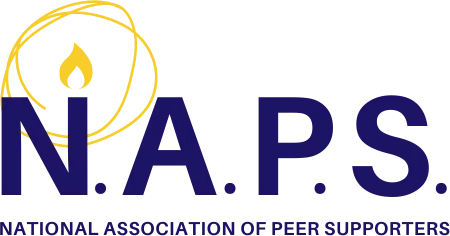Job Board
NYS Certified Recovery Peer Advocate (CRPA-P)
To apply, Log In or Create an Account.
The OASAS Certified Recovery Peer Advocate requires someone who is culturally aware and sensitive to the needs of the targeted population, possess excellent computer skills, be able to function as a part of an inter-disciplinary team and understand therapy and group work rooted in evidenced based approaches for intervention and management strategies. Certified Recovery Peer Advocate services are peer-delivered services with a rehabilitation and recovery focus. They are designed to promote skills for coping with and managing behavioral health symptoms while facilitating the utilization of natural resources and the enhancement of recovery-oriented principles (e.g., hope and self-efficacy, and community living skills). Certified Recovery Peer Advocate support uses trauma-informed, non-clinical assistance to achieve long-term recovery from a behavioral health disorder.
Under supervision of the Program Director, the requirements listed below represent the knowledge, skill, and/or ability required. The provider ensures strengths based, person centered quality of care provided in a culturally and linguistically meaningful therapeutic environment. Reasonable accommodations may be made to enable individuals with disabilities as defined by the ADA to perform the essential functions of the job. The functions below outline the general responsibilities associated with this position. Each of these functions is considered critical to effective department operations and our Mission. It is expected that all staff in this position will have satisfactory attendance and will perform these functions as assigned in a competent, cooperative, and timely manner. The Job Description will be reviewed periodically for accuracy and/or adjusted according to business necessity.
MANAGEMENT/SUPERVISORY RESPONSIBLITIES:
This position has the following management/supervisory responsibility (check only one):
| ☒ | This position includes no managerial or supervisory responsibilities. |
| ☐ | This is a supervisory position. |
| ☐ | This position is a managerial position. |
| ☐ | This is a director/administrator position. |
KEY ESSENTIAL FUNCTIONS:
- Provide rehabilitative and recovery-oriented interventions for adults diagnosed with severe and persistent mental illnesses and substance abuse disorders.
- Help promote skills for coping and managing behavioral health symptoms.
- Provide integrated dual disorder services, including relapse prevention planning.
- Conduct assessment and groups specific to substance abuse and dependency.
- Utilize motivational interviewing and other evidence-based practices (EBP) while working with individuals at different stages of change to help individuals reduce use/abstain from substance use.
- Work as a member of multidisciplinary treatment team that practices client centered and holistic care; accompany clients to appointments and complete warm handoff referrals, including health homes services.
- Communicate effectively with clients and collateral contacts and conduct outreach for care coordination.
- Provide advocacy services for clients, including assisting individuals obtain benefits and entitlements, food, housing, and access appropriate care in the community.
- Conduct interim visits with individuals after a discharge from a hospital, rehab, or inpatient stay to facilitate community tenure and increased readiness while waiting for the first post-discharge visit with a community-based mental health provider.
- Assist in the selection and utilization of self-directed recovery tools such as relapse prevention planning.
- Connect individuals to self-help groups in the community.
- Provide recovery education and counseling to individuals and their family members.
- Provide transitional support bridging from an institution (jail, hospital, rehab) to an individual’s home.
- Provide preventative and crisis support services.
- Provide parent skills development and training.
- Conduct groups with families to strengthen social skills, decrease isolation, provide emotional support, and create opportunities for ongoing natural support.
- Participate in staff and organizational meetings as requested for care coordination and development of policies and procedures.
- Maintain compliance with all organizational policies and procedures.
- Facilitate and co-facilitate EBP groups.
- Participate as member of the EBP groups’ curriculum development process.
- Complete office duties as needed/required.
- Complete wellness, health promotions activities.
- Participate as a member of the on-call Mobile Crisis Intervention team that is dispatched into the community as needed after hours. Peers may assist with developing crisis diversion plans or relapse prevention plans; may provide support during and after a crisis and may assist with connecting an individual with natural supports and linkages to community services.
- Follow-up with the individual and the individual’s family/support network to confirm linkage to Care Coordination, outpatient treatment or other community services.
- Perform additional relevant duties as requested by supervisor/management.
- Follows established policies and procedures.
REQUIREMENTS:
- Hold a high school diploma or high school equivalency
- Bi-lingual (Spanish/English); strongly preferred
- NYS Certified Recovery Peer Advocate certification is required. Provisional certification
will be accepted with 12 months to obtain full certification. If employee does not currently hold
a CRPA-Provisional certification, a 6-month provisional offer will be provided.
- Obtain within thirty days of hire:
- Screening, Brief Intervention and Referral to Treatment
- CASAC Canon of Ethics (6 hours)
- Confidentiality related to 42CFR (3 Hours)
- Mandated Reporter https://nysmandatedreporter.org/TrainingCourses.aspx
- Must complete Integrated Mental Health/Addictions Treatment Training (IMHATT) Certificate within 3 (three) months of employment.
- Must be trained in Trauma Informed Care and in Military and Veteran’s culture, or complete training within 1 month of employment.
- Experience or desire to work with people who have a mental illness or substance use disorder.
- Positive attitude and professional demeanor.
- Ability to complete work independently as well as in collaboration with team members
- Must be team oriented with a willingness to be flexible and helpful.
- Excellent computer skills including Microsoft Windows, Excel, PowerPoint, and electronic communications tools: internet and email.
- Ability to communicate effectively orally and in writing.
- Highly organized, motivated self-starter.
- Excellent time management skills.
Posted On: January 3, 2024
Peer Specialist – Oneida County Jail
Helio Health
Full-Time | On Location / In Office
$17 - $19/hr.
